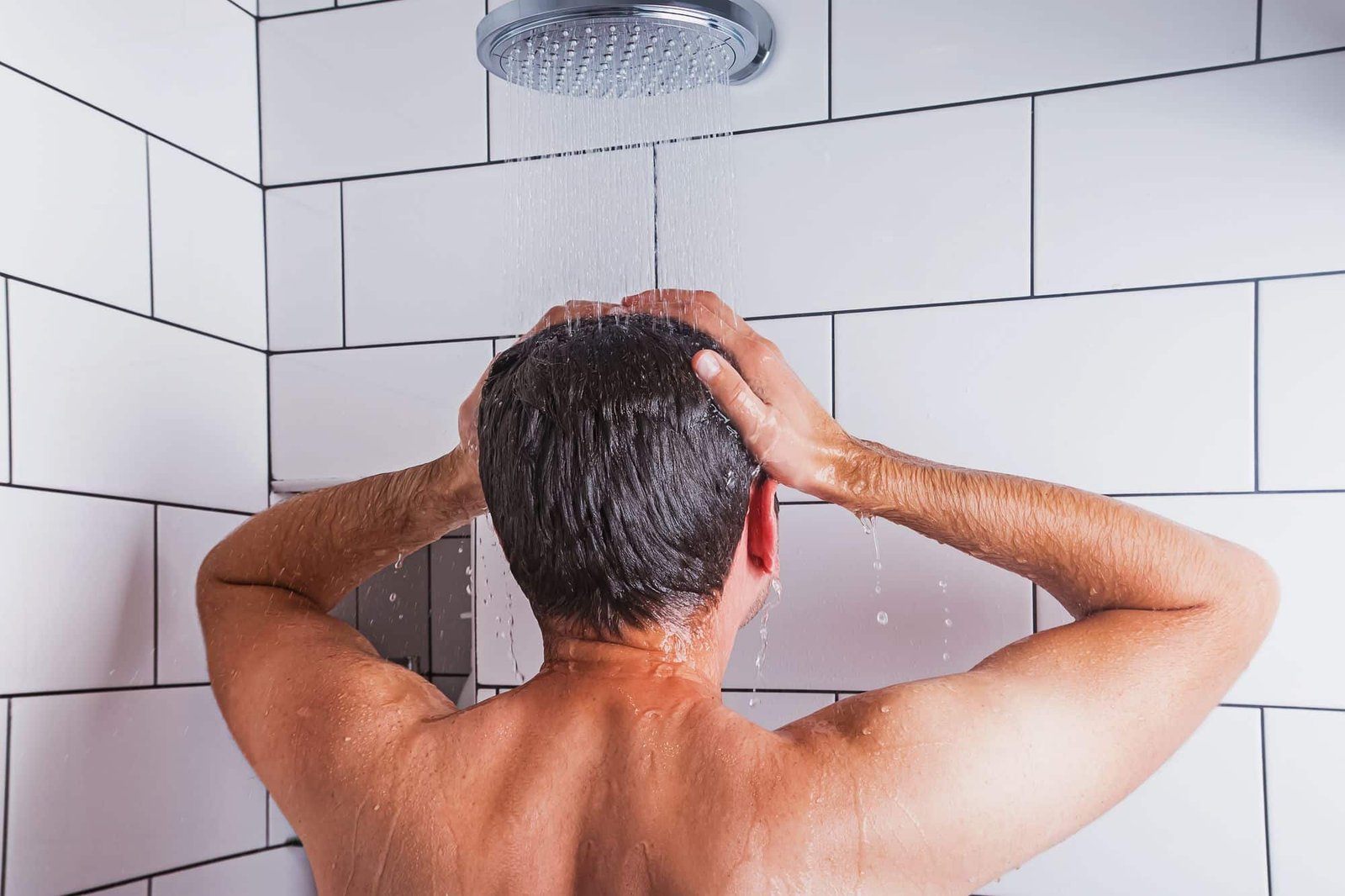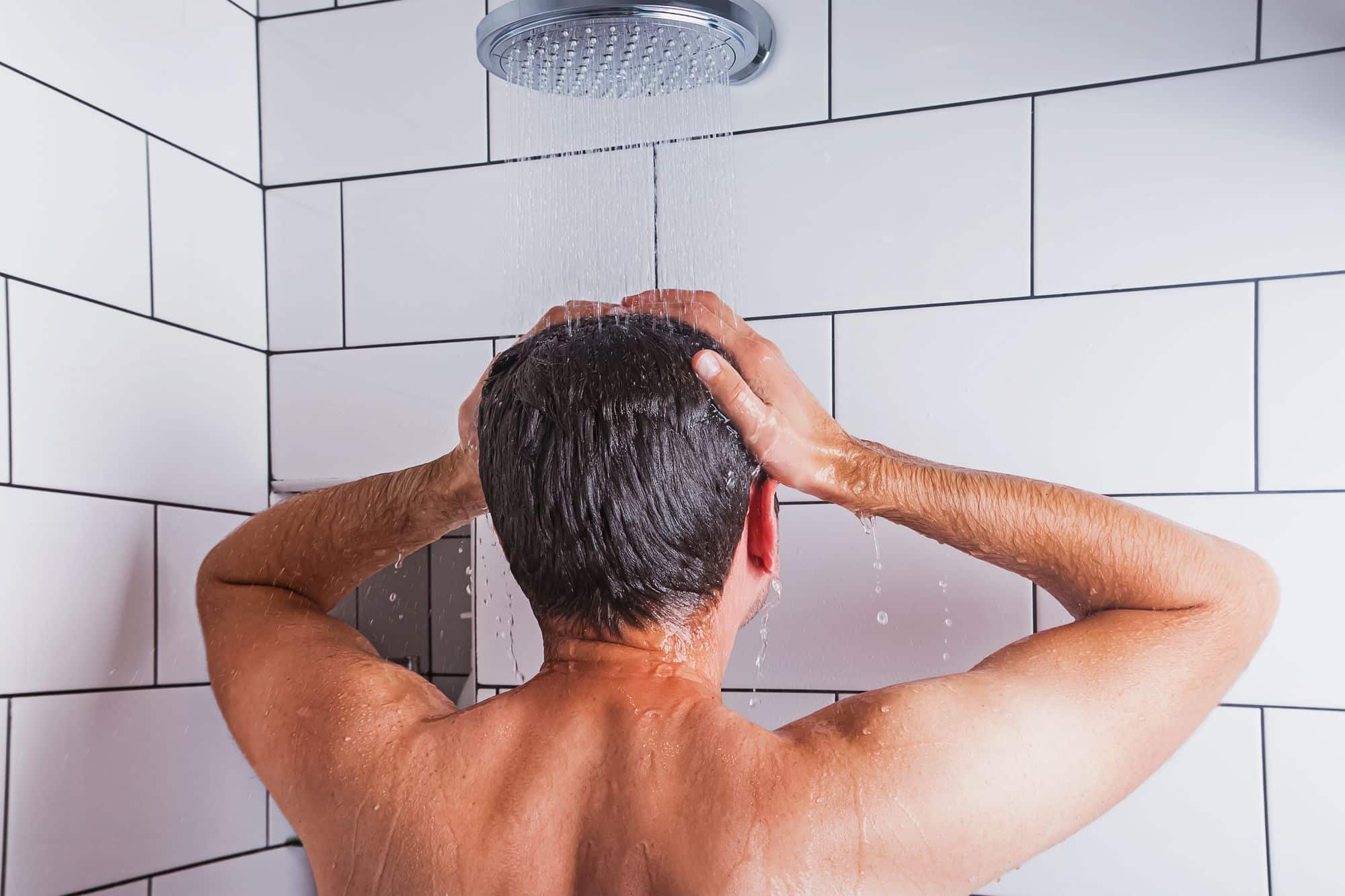
Could hard water be causing your hair loss?

This article was reviewed by Lynn Marie Morski, MD, JD.
Can Hard Water Cause Hair Loss?
Can hard water cause hair loss? And what exactly is hard water, anyway?
Overview
Let’s start with the basics. Hard water is simply water with a high amount of minerals. The higher concentration can change how your shampoo and conditioner work.
So, does hard water make your hair fall out? The answer isn’t clear-cut. Some studies suggest that hard water can leave mineral deposits on your scalp, which might dry out your skin or cause dandruff. But if you’re seeing signs of male pattern baldness, hard water alone probably isn’t to blame.
Keep reading to learn more about how hard water could affect your hair and what you can do about it.
What Is Hard Water?
Hard water is water with a high mineral content — mainly calcium and magnesium. You’ll notice it by the way it feels. It can leave your skin feeling different compared to soft, low-mineral water.
At home, hard water often leaves spots or a cloudy film on your dishes, appliances, or the inside of your kettle. You might also spot a filmy residue on your hands after washing with soap.
Water hardness is measured by how much calcium carbonate it contains:
- Less than 60 milligrams (mg) per liter = soft
- 61–120 mg per liter = moderately hard
- 121–180 mg per liter = hard
- More than 180 mg per liter = very hard
Water hardness varies by region. Hard water is most common in the Southwest, Midwest, and parts of the Northeast U.S.
Thankfully, hard water isn’t a health risk, but it can be rough on your hair follicles.
Is Hard Water Bad For Your Hair?
Maybe. But the science isn’t settled.
Some studies suggest hard water can weaken hair and make it more prone to breakage. Others find no real difference in hair strength or elasticity. Most research so far has only tested isolated hair strands, though.
For example, a 2018 study from Pakistan published in the International Journal of Trichology found that hair strands treated with hard water were weaker than those exposed to softer water. All the hairs were taken from males in their 20s. This supported earlier findings from the same research group.
On the other hand, an older 2013 study from India found no difference in strength or elasticity between hair soaked in distilled water or hard water. However, when the same researchers washed hair samples in hard water for 30 days, the hairs ended up thinner and had more calcium buildup compared to hairs washed in distilled water.
Keep in mind, these tests were done on hair that had already fallen out — not on “live” hair still in the active growing phase of the hair growth cycle.
So, what does all this mean? There just aren’t enough studies yet to give a clear answer. In theory, if hard water does weaken hair, it could lead to more breakage and shedding.
Hard Water And Scalp Dryness
Hard water can leave mineral deposits on your scalp, disrupting its natural moisture barrier. This can lead to dryness and dandruff.
While these issues are usually harmless, severe dryness and itching can damage hair follicles and even cause hair loss. If dandruff is bothering you, check out our guide for potential solutions.
Hard water And Skin Conditions
If you have skin conditions like eczema or psoriasis, hard water can make symptoms worse. Minerals in hard water react with soap, leaving a residue that can irritate your scalp and trigger flare-ups.
Signs of Hard Water | Hard Water Damage
Ever feel like your soap just won’t lather, or your skin is drier than usual after a shower? You might live somewhere with hard water if you notice:
- Soap scum residue on sinks, tubs, or shower doors
- Chalky deposits in your dishwasher, toilet, kettle, or other appliances
- Soap doesn’t lather well, rinse away cleanly, or last very long
- Itchier, drier skin after bathing at home compared to when you travel
And if you’ve recently switched water sources and start noticing any of these hair issues, it might be your water, not your shampoo:
- Dryness, breakage, or split ends
- Frizzy, dull, or fading hair color
- Hair loss
- New or worsening scalp issues, like scalp folliculitis
Is Hard Water Hair Loss Reversible?
Yes. If hard water is causing your hair loss, you can often reverse it by fixing the problem. As long as your hair follicles aren’t badly damaged, healthy growth should return once you remove the source of the issue.
What to Do About Hard Water
Worried hard water is hurting your hair? Don’t worry. There are some easy fixes you can try.
Install a Water-Softening System
The best way to fight hard water is to soften it. You can add a simple shower filter or install a full-home softening system. These work by swapping out minerals like calcium and magnesium for sodium, leaving your water softer and gentler on your hair and skin.
Shower filters are budget-friendly and easy to install, while whole-home systems give you the most coverage. If you’re on a low-sodium diet, consider using potassium chloride in your softener or keep one tap unsoftened for cooking and drinking.
Try a Chelating or Clarifying Shampoo
These shampoos are made to remove mineral buildup from your hair. Look for ingredients like:
- Ethylenediaminetetraacetic acid (EDTA)
- Citric acid
- Apple cider vinegar
You’ll find clarifying shampoos at most stores. Use them once a week, and always follow up with conditioner to keep your hair from drying out.
Rinse With Diluted Vinegar or Lemon Water
Make a quick DIY rinse by mixing 1–2 tablespoons of apple cider vinegar or lemon juice with 1 cup of water. Pour it over your hair, leave for a minute or two, then rinse with cool water. This helps dissolve minerals and leaves your hair feeling fresh.
Take Shorter, Cooler Showers
Long, hot showers can strip your scalp of its natural oils. To protect your hair and skin, keep showers shorter and use cooler water.
How to Regrow Hair Loss Due to Hard Water
Hard water can make your hair dry and brittle, but it’s rarely the main cause of hair loss. More often, hair loss in men comes from genetic factors and sensitivity to the hormone dihydrotestosterone (DHT). Over time, DHT shrinks hair follicles, leading to thinning and bald spots, often starting at the temples and crown.
Finding out what’s causing your hair loss is the first step in treating it. Here are some treatment options.
Finasteride
This prescription hair loss medication for male-pattern and female-pattern hair loss lowers DHT levels in your body.
Studies show finasteride can reduce DHT by 70 percent, slowing down or even reversing hair loss. The sooner you start, the better the results.
Minoxidil
This topical hair loss treatment increases blood flow to your hair follicles, encouraging hair growth. In one study, researchers found that 84.3 percent of male participants who used minoxidil saw improvements in hair growth. For best results, you can use minoxidil alongside finasteride.
Use Nourishing Hair Products
Hard water can dry out your scalp, causing itchiness or dandruff. To reduce buildup and keep your hair healthy, use a hydrating hair mask, leave-in conditioner, or a gentle shampoo.
Low-Level Laser Therapy
Low-level laser therapy uses weak lasers to stimulate hair growth. Early research looks promising, but LLLT doesn’t have FDA approval yet. Treatments are available in clinics and now as home devices.
Hair Transplants
Hair transplants move hair from thicker areas to balding spots. Modern techniques look natural and can help hide severe hair loss.
Learn more about hair transplants.
Addressing Other Causes of Hair Loss
Genetics and hard water aren’t the only potential causes of hair loss. Conditions like alopecia areata or nutrient deficiencies can also trigger hair loss.
Not sure why you might be losing hair? It’s a good idea to talk to a healthcare professional to pinpoint the underlying cause and learn about your treatment options.
Hard Water Hair Loss Takeaway
Does hard water affect your hair? Maybe. Some studies suggest hard water can weaken your hair, making it more likely to break. Let’s recap what we know about the link between hard water and hair loss:
- More breakage due to hard water exposure can trigger excess shedding. Weaker hair is more likely to break off and shed when brushing, styling, or washing.
- Water softeners and clarifying shampoos can help. Install a water softening system and wash your hair with clarifying shampoo once a week to prevent scalp mineral buildup.
- Early treatment is key when it comes to male pattern hair loss. Hair loss can happen for many reasons. A healthcare professional can determine the underlying cause and outline your treatment options.
When it comes to stopping and reversing hair loss, the most effective treatments are finasteride and minoxidil.
- Related: Rosemary Oil for Hair Growth: Benefits, How to Use It & More
- Related: Laser Treatment for Hair Loss: A Complete Guide
Like MediaFeed’s content? Be sure to follow us.
This article originally appeared on Hims.com and was syndicated by MediaFeed.org.
